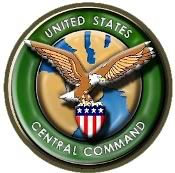This Smells Fishy To Me
The first question was: "All in all do you think it was worth going to war in Iraq or not?"
41% said yes, 57% said no, and 2% had no opinion.
The question seems innocent enough but I wonder if the "not" at the end of the question would solicit a negative answer if the respondent were not paying close attention. Would the question have been the same had the respondent been asked "Do you think it was worth going to war in Iraq?". It would be interesting to see if the results would have been the same given the same choice of answers. The question just seems leading to me.
The second question was: "In general, how would you say things are going for the United States in Iraq -- very well, moderately well, moderately badly or very badly?"
56% said badly, 42% said well, 2% had no opinon.
I am not a polling expert but it seems to me that the questions were asked with four possible responses, but reported lumped together as if it doesn't matter. It does matter when you consider that moderately well and moderately badly are responses that are actually very close to swinging one way or the other on any given day. These responses by their very nature are right down the middle and cannot be definitively classified in either category. I don't believe these results hold much validity without being able to see the actual results from each category.
The third question was: "In view of the developments since we first sent our troops to Iraq, do you think the United States made a mistake in sending troops to Iraq or not?"
49% said yes, 48% said no, 3% had no opinion.
Could the same question have been asked in this way?:
"In view of the developments since we first sent our troops to Iraq, do you think the United States made the correct decision in sending troops to Iraq?
Asking the question in this manner doesn't solicit a negative result. Naysayers will object that using the word "correct" would be skewing the results toward a positive result, but that is not true. Using the word "correct" begs the respondent to decide whether the decision was right or wrong. Using the word "mistake" leads the respondent to assume a mistake has been made before the question has been fully asked.
The story ends in this way:
As you read the story, note that there is no new headline for this information. It was tacked onto the end of the poll story as if it were part of the poll. Maybe I'm reading too much into this, but could they possibly be trying to influence public opinion in an attempt to skew the results of the next poll? They wouldn't do that, would they?Early Tuesday, the U.S. military found the body of a pilot from one of two missing Marine Corps F/A-18 jets that Navy officials believe collided while flying in operations in Iraq. (Full story)
The number of U.S. troops who have died in the Iraq war stands at 1,587, according to the military.
A poll conducted in February showed that the January 30 Iraqi elections produced a bump in President Bush's approval rating. In that poll, 55 percent of Americans said the Iraq war was not a mistake. (Full story)
Political negotiations since then have delayed the formation of a new government.
But on Tuesday, Iraqi politicians were putting the finishing touches on the nation's new Cabinet, with Shiite Arab leader Ibrahim al-Jaafari sworn in as prime minister.
More than 100 Iraqis, most of them security forces and civilians, have died in insurgent attacks since last Thursday, when Iraq's transitional National Assembly approved a partial Cabinet list.































<< Home